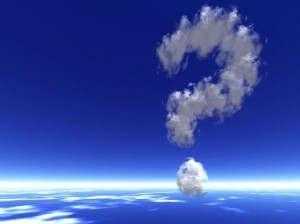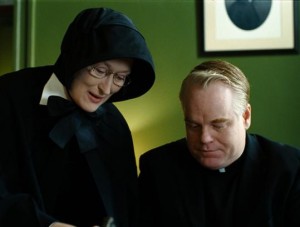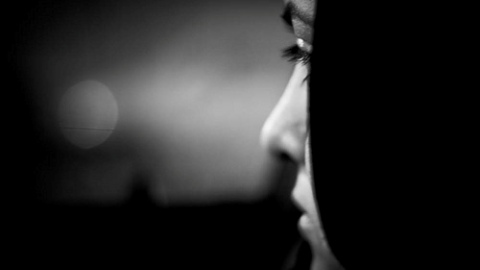“Doubt,” I once heard a teacher say, “is like having a dog on a leash. You have to know when to let it run, and when to put it back on the leash.” Far too many people however, let their dogs run freely, but never let their doubt out of the house.
 It may seem strange to talk about the need for doubt in an age when the future of humanity has never been in more doubt. But it’s fitting and necessary, since contrary to our conditioning and traditions in the West, doubt, with the right approach and to the right degree, is the essential element that brings insight, clarity and understanding.
It may seem strange to talk about the need for doubt in an age when the future of humanity has never been in more doubt. But it’s fitting and necessary, since contrary to our conditioning and traditions in the West, doubt, with the right approach and to the right degree, is the essential element that brings insight, clarity and understanding.
What does it mean to doubt in the right way and degree? A useful distinction is to be alert to the difference between impersonal doubt and self-doubt.
Doubt in the true sense questions and lets go, leaving the mind without a mark. It plants a seed and forgets it, letting the soil of the brain germinate insight. Doubt in this sense has nothing to do with distrust and misgiving.
Self-doubt on the other hand is always of shadows and conditioning, indicative of a lack of trust of oneself and others. It pertains, as the word implies, to the self, the me. This kind of doubt burdens the mind and encrusts the heart.
In other words, doubt as impersonal skepticism and questioning purges and purifies, whereas self-doubt impedes and paralyzes. It can be hard to tell the difference, but it’s a crucial distinction. As Voltaire said, “Doubt is not a pleasant condition, but certainty is absurd.”
Even though doubt is central to the scientific enterprise, doubt has been given a bad name in Western civilization. The Christian tradition is based on belief and faith, and doubt has been seen as vacillation or weakness, even heresy.
In the East on the other hand, at least in pre-colonial India, doubt was central to the inward life, an essential part of religious enquiry. Indeed, doubt was the indispensible basis of a spiritual life.
Doubt in the true sense is not a search and a seeking however. It doesn’t pursue answers but brings the mind into radical stillness, in which there is great vitality, and insight and intelligence can flower. Doubt without direction awakens the human mind to that which is beyond thought.
For the first 15 years of my adult life, I had to find out how the human species, which evolved in nature, could be so at odds with and destructive of nature. Shortly after I finally had an insight into its origin, I had a shattering experience. In a meditative state, I was caught under the flight path of a low-flying B-52 at the height of the Cold War, which literally shook my guts. But the initial reaction of fear and flight became a focused stand. It brought philosophical clarity at a gut level, drove home the fact that I was inseparable from the crisis of man, and ended my obsession. But it didn’t bring liberation.
Scientific and philosophical answers never do bring liberation, because they simply can’t. Science and philosophy have their place, just not first place. The quest for inner clarity is primary.
have their place, just not first place. The quest for inner clarity is primary.
Science has usurped philosophy’s former role, and reason and science are attempting to fill the vacuum left by the collapse of the inner structures of belief and faith, but it’s only creating more of a vacuum within. Celebrities are the new gods, presently producing a silly Bieber fever that shows no signs of breaking.
The West has gone as far as it can with its external drive, which is essentially materialistic, technological and superficial. People can fantasize about going to Mars and other planets and moons as much as they want, and some may actually do so, but it no longer fires the imagination, especially in the West.
Not that the imagination is the most important thing either; it isn’t. The point is that the vitality of the West in the outward quest, which has its roots in the Greek/Roman/Christian worldview, is spent. We have no choice but to find a new source of vitality. It is to be found in giving rightful doubt its rightful place.
Is there a general readiness in the West to turn inward? The phrase ‘turning inward’ is used pejoratively by pundits and mainstream editors, implying isolationism, indifference to the rest of the world, even navel staring. But it is none of these things in true people.
Religious doubt requires innocence, another word and thing with negative connotations in the West, implying naïveté and childishness. But that’s the furthest thing from the truth.
A boy of about 9, in red shorts and T-shirt, makes his way in the brush along the bank toward where I’m sitting next to the creek. His friend upstream is shouting at him, but he’s talking softly to himself.
I don’t want to scare him, but my curiosity wins out and I wait to see how he’ll react to seeing a man sitting there. When he comes around the tree and sees me two feet away, his face registers only mild surprise and no self-consciousness.
I smile and say hello. “Hello sir,” he says politely and rather sweetly. Looking him in the eye, I ask, ‘How are you?’ “Good,” he replies, and turns around without haste. A moment later he shouts to his friend that he’s coming back.
There is a point beyond which doubt is no longer beneficial. Then it has done its job, and yields to attention, silence and love.
Martin LeFevre

